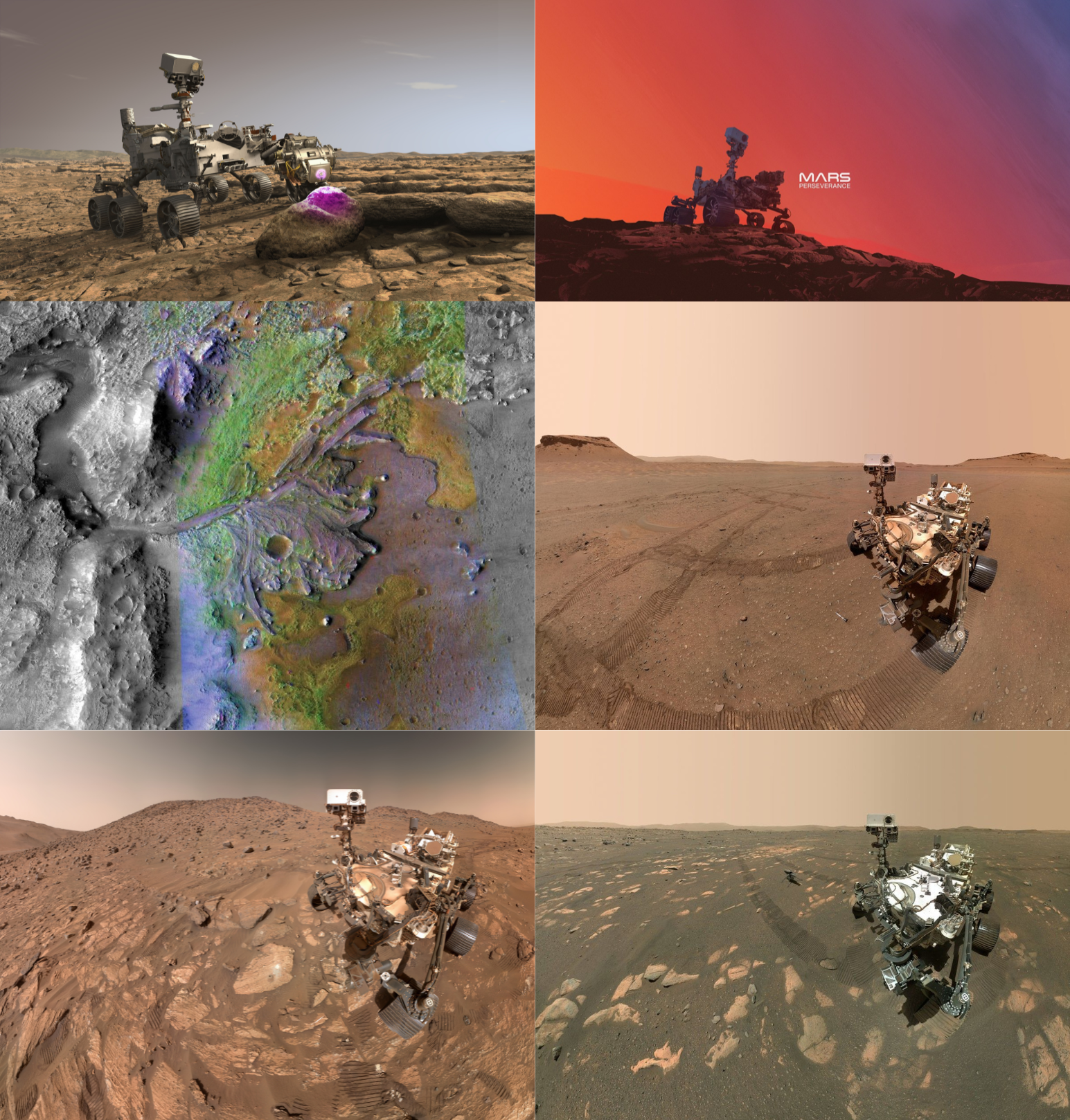HGS E & E Meeting
In order to register, please click login to either sign in to an existing account or create a user profile. Go to the HGS home page and login with your user name and password and then return to this page in order to register as a member or guest of a member. For help registering contact the HGS office or email webmaster@hgs.org. Thank you!
Perseverance at the Frontier of Mars Exploration
by Ellie Moreland
October 15, 2025
Location: Los Tios restaurant located at 9527 Westheimer RD, Houston.
Social 5:30 p.m., Dinner 6:30 p.m., Presentation 7:30- 9:00 p.m.
Cost: $35 Pre-registered members; $40 non-members & ALL walk-ups
To guarantee a seat, you must pre-register on the HGS website and pay with a credit card. You may walk up and pay at the door if extra seats are available. Please cancel by phone or email within 24 hours before the event for a refund. Online & pre-registration closes Tuesday, at 12:00 p.m.
Abstract
Since landing in February 2021, NASA’s Perseverance rover has been exploring the ancient landscapes of Jezero Crater, Mars — a once-lake basin that preserves evidence of both igneous activity and aqueous alteration. Through a series of directed campaigns, Perseverance is investigating and sampling rocks that record the planet’s magmatic and hydrologic evolution. The Planetary Instrument for X-ray Lithochemistry (PIXL) on the rover’s arm provides the highest-resolution geochemical analyses ever obtained on another planet, enabling mineral-scale identification of textures and compositions. Using these data, the Mineral Identification by Stoichiometry (MIST) algorithm reveals distinct mineral assemblages that trace water–rock interactions and diagenetic processes. By comparing these Martian minerals to their Earth analogs, we gain new insights into habitability and the geologic processes that continue to shape both planets.

Bio

Ellie Moreland is a Ph.D. candidate in Earth, Environmental, and Planetary Sciences at Rice University, where she studies Martian mineralogy and geochemistry as part of NASA’s Mars 2020 Perseverance science team. She supports operations for the Planetary Instrument for X-ray Lithochemistry (PIXL) and helps lead the development of the Mineral Identification by Stoichiometry (MIST) algorithm — a new method for directly identifying minerals from geochemical data. Before coming to Rice, Ellie earned her B.A. in Geology from Washington University in St. Louis, where she conducted research on the mineralogy of aeolian deposits in Gale Crater and iron oxidation pathways in Mars-relevant fluids. Her broader research spans surface processes and paleoenvironments on Mars, including studies of redox-driven mineral associations and climate modeling of ancient lake systems, aimed at understanding how water, rock, and climate have interacted over Martian history.
9527 Westheimer Rd
Houston, TX 77063
United States
| E&E Meetings | |
| HGS Member | $ 35.00 |
| Non-HGS Member | $ 40.00 |
|
Event Attachments
|
|
Event Contact
|
|
Committee
|
|
Event Filter Informations
|


